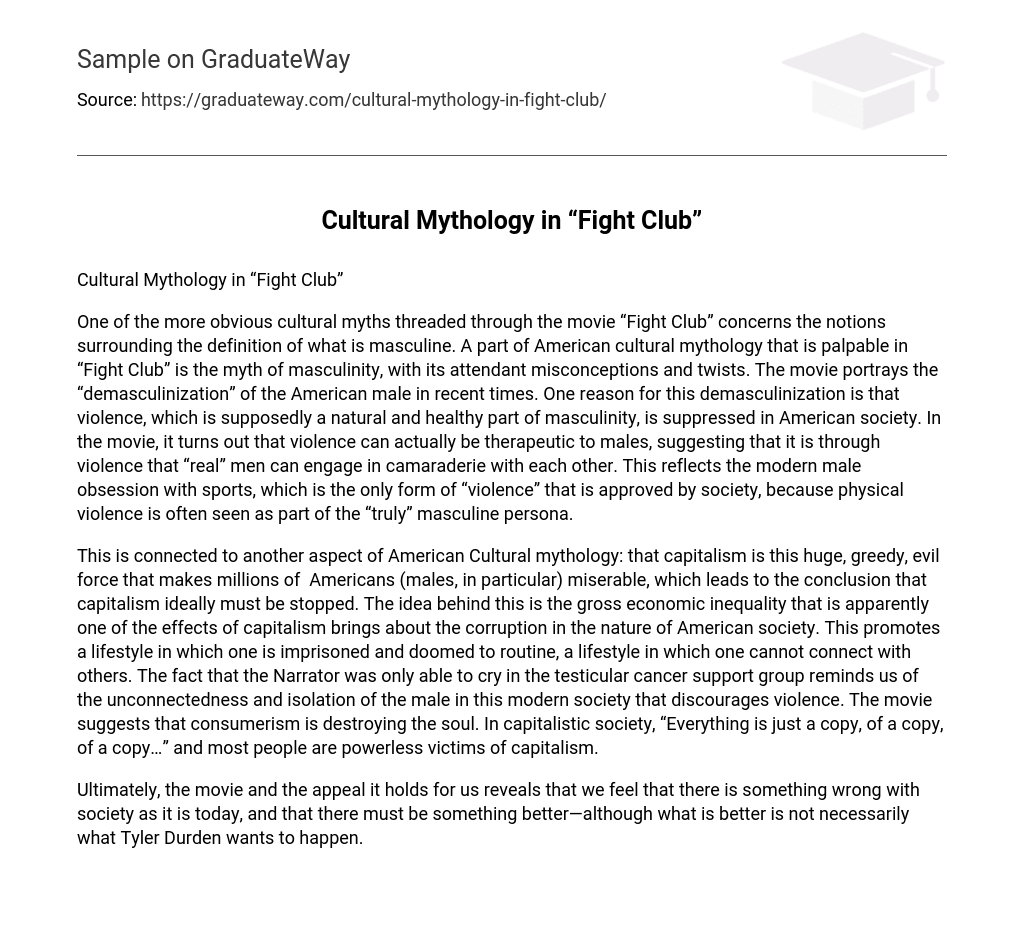One of the more obvious cultural myths threaded through the movie “Fight Club” concerns the notions surrounding the definition of what is masculine. A part of American cultural mythology that is palpable in “Fight Club” is the myth of masculinity, with its attendant misconceptions and twists. The movie portrays the “demasculinization” of the American male in recent times. One reason for this demasculinization is that violence, which is supposedly a natural and healthy part of masculinity, is suppressed in American society. In the movie, it turns out that violence can actually be therapeutic to males, suggesting that it is through violence that “real” men can engage in camaraderie with each other. This reflects the modern male obsession with sports, which is the only form of “violence” that is approved by society, because physical violence is often seen as part of the “truly” masculine persona.
This is connected to another aspect of American Cultural mythology: that capitalism is this huge, greedy, evil force that makes millions of Americans (males, in particular) miserable, which leads to the conclusion that capitalism ideally must be stopped. The idea behind this is the gross economic inequality that is apparently one of the effects of capitalism brings about the corruption in the nature of American society. This promotes a lifestyle in which one is imprisoned and doomed to routine, a lifestyle in which one cannot connect with others. The fact that the Narrator was only able to cry in the testicular cancer support group reminds us of the unconnectedness and isolation of the male in this modern society that discourages violence. The movie suggests that consumerism is destroying the soul. In capitalistic society, “Everything is just a copy, of a copy, of a copy…” and most people are powerless victims of capitalism.
Ultimately, the movie and the appeal it holds for us reveals that we feel that there is something wrong with society as it is today, and that there must be something better—although what is better is not necessarily what Tyler Durden wants to happen.





